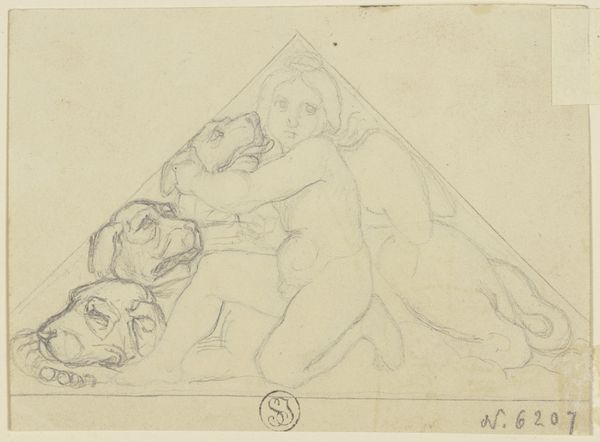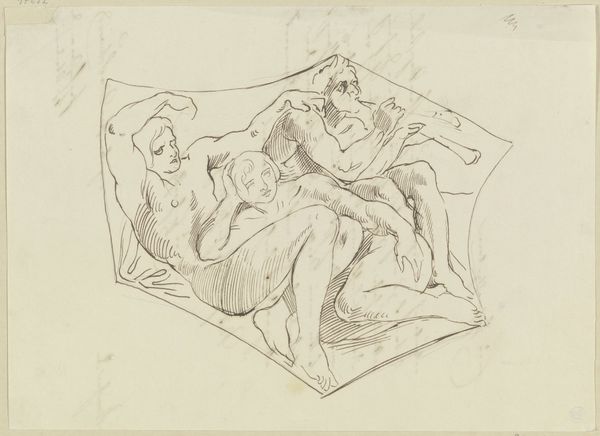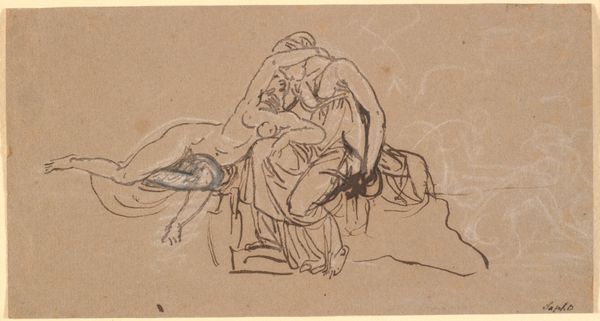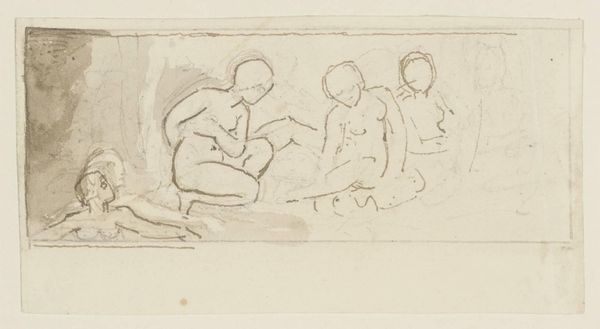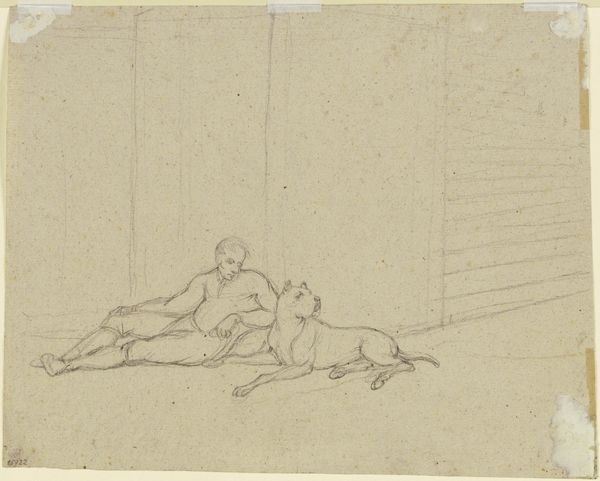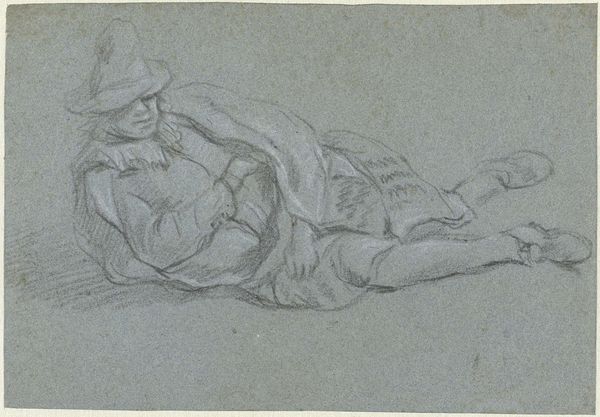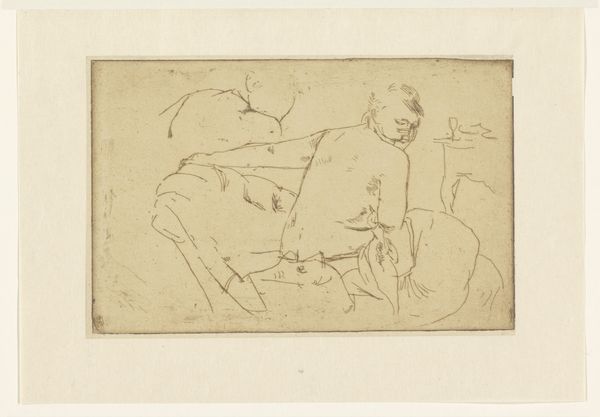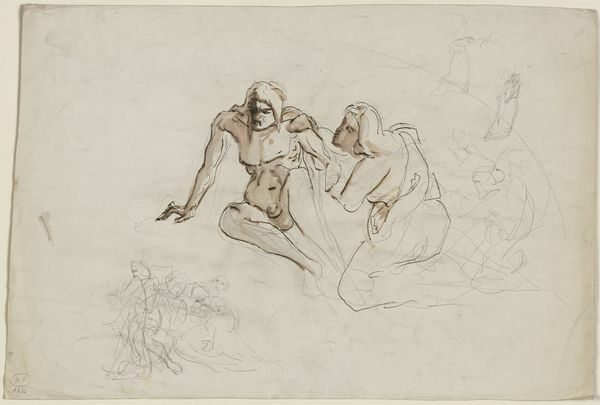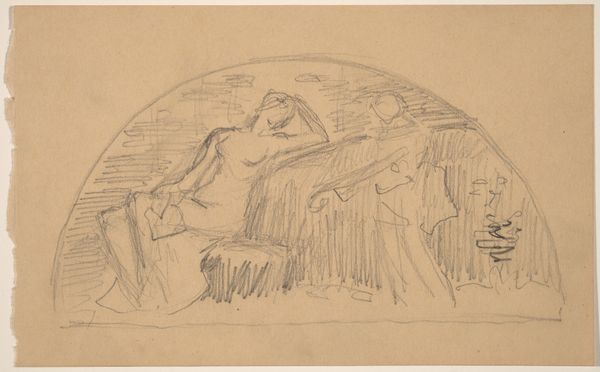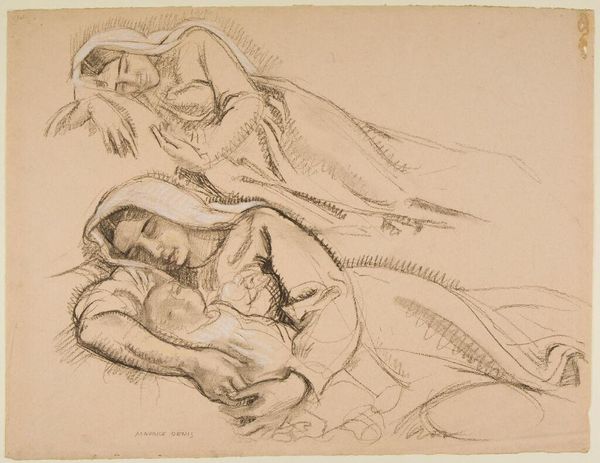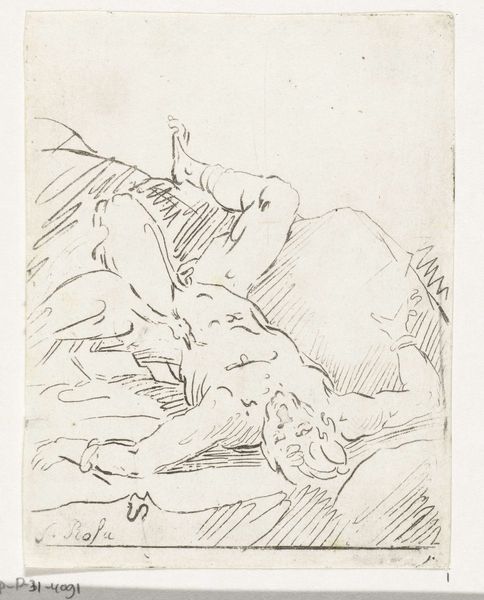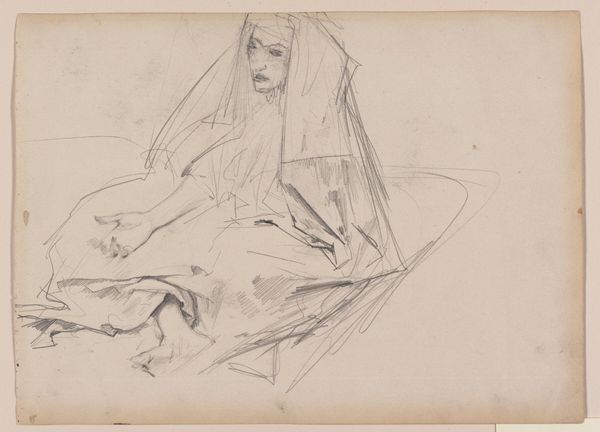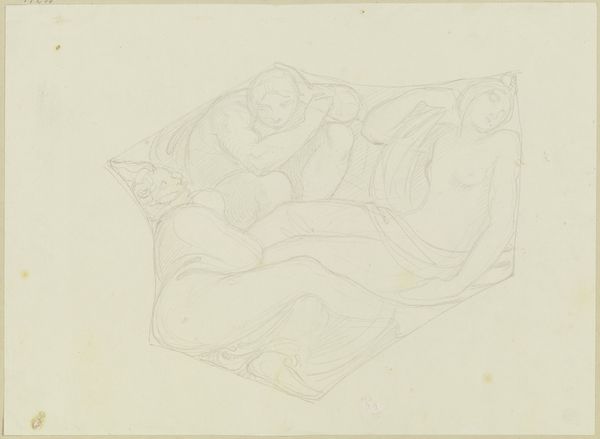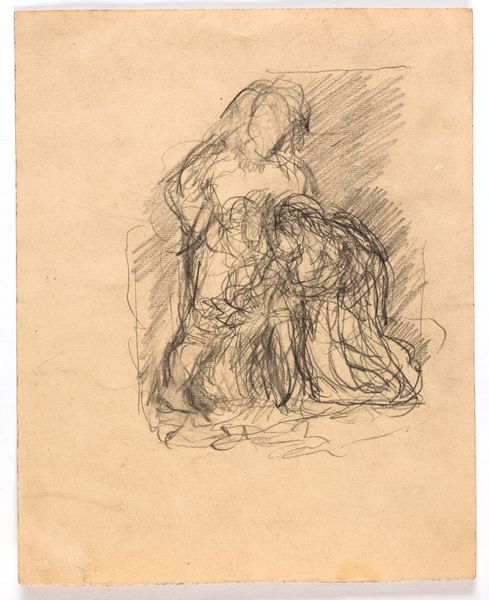
drawing, pencil
#
drawing
#
figuration
#
romanticism
#
pencil
#
history-painting
Copyright: Public Domain
Curator: This pencil drawing, "Erot with Cerberus," dates back to 1820 and comes to us from the hand of Eugen Eduard Schäffer. What strikes you first? Editor: The vulnerability. This is the three-headed guardian of the underworld being tamed not by some heroic figure, but by a winged child—and with what looks like affection. The sketch, with its soft lines, really emphasizes that feeling. Curator: Absolutely. We see the traditional image of power subverted. Schäffer situates Erot, the Greek god of love and desire, in a position of control, suggesting the potency of affection even over death and the fearsome unknown. Think about the time. Early 19th century, and you have shifting power structures and challenges to traditional authority rippling throughout Europe. Editor: I’m also intrigued by the triangular shape of the composition, which draws my eye upwards towards Erot’s serene, almost knowing, expression. It reminds me of classical friezes, echoing earlier symbolic frameworks even as it seems to turn them on their head. What do the wings signify in this image? Curator: Wings traditionally symbolize divinity and freedom, of course, but in the context of this piece, they also become a signifier of privilege and unchecked authority. But instead of oppression, it is presented here with kindness, literally bending to embrace this beast. Schäffer questions the narratives society builds about power. Editor: It certainly challenges those well-worn images. We so often portray the fearsome or monstrous as something to be battled and conquered, but here, gentleness seems to win the day. It’s a radical reinterpretation, even today. Curator: And I wonder, what happens when we dare to approach those perceived monsters within our society with understanding instead of fear. I find this is incredibly important when we view works of this age from a 21st-century perspective. Editor: That really resonates. I’ll carry this sketch's invitation to question power structures— and the surprising gentleness within this rough pencil work — with me.
Comments
No comments
Be the first to comment and join the conversation on the ultimate creative platform.
